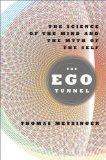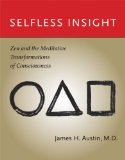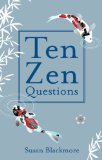‘Wellbeing’ by Mark Vernon – Metapsychology review and related links
March 7, 2009
I recently reviewed Wellbeing (The Art of Living Series) by Mark Vernon for Metapsychology Online Reviews, so I wanted to link to the review and add some related links here….
Art of Living Series, publisher’s information, Art of Living Series at Amazon
“Further reading” from Wellbeing:
- Authentic Happiness: Using the New Positive Psychology to Realize Your Potential for Lasting Fulfillment by Martin Seligman
- Happiness: Lessons from a New Science by Richard Layard
- Happier: Learn the Secrets to Daily Joy and Lasting Fulfillment by Tal Ben-Shahar
- The Happiness Hypothesis: Finding Modern Truth in Ancient Wisdom by Jonathan Haidt
- The Selfish Capitalist: Origins of Affluenza by Oliver James
- The Head Trip: Adventures on the Wheel of Consciousness by Jeff Warren
- New Frontier of Religion and Science: Religious Experience, Neuroscience, and the Transcendent by John Hick
- Aristotle – Eudemian Ethics, Nicomachean Ethics
- Happy Lives and the Highest Good: An Essay on Aristotle’s Nicomachean Ethics by Gabriel Richardson Lear
- Plato – Phaedrus, Symposium
- Metaphysics as a Guide to Morals by Iris Murdoch
- Existentialists and Mystics: Writings on Philosophy and Literature by Iris Murdoch, Peter Conradi (ed.)
- A Secular Age by Charles Taylor
- The Monk and the Philosopher: A Father and Son Discuss the Meaning of Life by Jean-Francois Revel and Matthieu Ricard
- Happiness: A Guide to Developing Life’s Most Important Skill by Matthieu Ricard
- The Spiritual Dimension: Religion, Philosophy and Human Value by John Cottingham
- Immortal Longings: Versions of Transcending Humanity by Fergus Kerr







